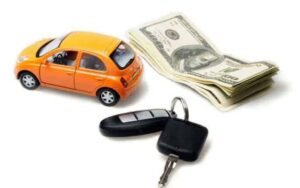
How to Budget for Owning a Car: Your Ultimate Financial Guide
Are you dreaming of owning your own set of wheels? Well, buckle up because we’re about to take you on a ride through the ins and outs of budgeting for car ownership. Whether you’re a future driver or a seasoned road warrior, understanding the financial side of owning a car is crucial. So, let’s dive in and explore how to budget like a pro for your four-wheeled friend.

Understanding Your Costs
First things first, let’s break down the costs you’ll encounter along the road of car ownership:
1. Monthly Payments: When you buy a car, you often don’t pay the full price upfront. Instead, you make monthly payments to the lender. These payments depend on factors like the car’s price, your down payment, and the loan term. Remember, the longer the loan term, the lower your monthly payments, but the more you’ll pay in interest over time.
2. Insurance Premiums: Every car needs insurance, just like you need a helmet for biking. Insurance protects you financially if your car gets damaged or you get into an accident. The cost of insurance depends on factors like your age, driving history, and the type of car you drive. A safer car often means lower premiums.
3. Maintenance Costs: Just like us, cars need regular check-ups to stay healthy. You’ll need to budget for things like oil changes, tire rotations, and brake replacements. Neglecting maintenance can lead to bigger (and costlier) problems down the road, so it’s essential to keep up with it.
4. Unexpected Expenses: Life is full of surprises, and so is car ownership. You might encounter unexpected expenses like a flat tire, a dead battery, or a malfunctioning engine. It’s wise to set aside some extra cash for these surprises so they don’t derail your budget.

Budgeting Like a Pro
Now that you know what you’re up against, let’s talk about how to budget like a pro:
1. Do Your Homework: Before you hit the road, research the costs associated with the car you want. Check out different models, compare prices, and get insurance quotes. Knowing what to expect upfront will help you budget more accurately.
2. Create a Budget: Once you have a clear picture of your costs, it’s time to create a budget. Start by listing all your monthly expenses, including your car-related costs. Then, subtract your total expenses from your income to see how much you have left for car payments and savings.
3. Save for a Down Payment: The more you can put down upfront, the lower your monthly payments will be. Aim to save at least 10-20% of the car’s purchase price for a down payment. This will also help you avoid paying more in interest over time.
4. Plan for the Unexpected: Life happens, and cars break down. Set aside some money each month for unexpected expenses. Having a rainy day fund will give you peace of mind knowing you’re prepared for whatever comes your way.
5. Shop Around: Don’t settle for the first deal you find. Shop around for the best prices on cars, loans, and insurance. You might be surprised at how much you can save with a little bit of research.
6. Be Flexible: Your budget isn’t set in stone. It’s okay to adjust it as you go, especially if your financial situation changes. Stay flexible and be willing to make sacrifices if needed to stay on track.
Conclusion
Owning a car is a big responsibility, but with the right financial plan in place, it can be a rewarding experience. By understanding your costs, creating a budget, and being proactive about saving and shopping around, you’ll be well-equipped to handle whatever the road throws your way. So, rev up those engines and hit the road with confidence!
Remember, financial car info is key to cruising smoothly through the world of car ownership. With the right knowledge and a little bit of planning, you’ll be driving towards financial success in no time. Happy travels!




Average Rating